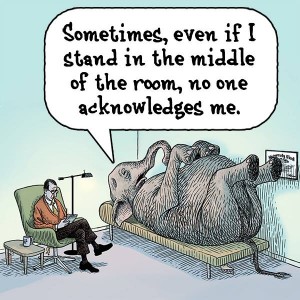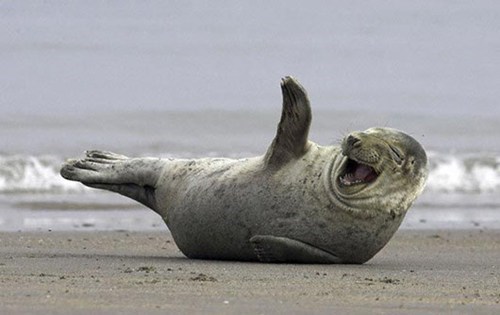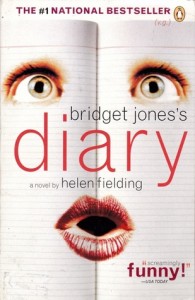It is said that writing humour is the most challenging type of writing, but being able to write comedy is an excellent skill to add to your writing toolbox.
Why is learning to write humour so important?
There are a number of reasons:
1. Humour writing contains important elements of craft
Humour writing teaches you a great deal about skills like pacing and word choice, and what you learn from humour writing can be applied to other areas of writing.
2. Humour helps you avoid monotony in your writing
Most books of any genre can benefit from a little humour. Even in terrible situations, people joke with one another or see something funny. A few moments of humour peppered throughout your novel can make your characters and situations seem more realistic and deepen your readers’ connections with them.
You will be a better writer in general as you become more versatile with different forms. Even if you don’t need humour in your current project, you may in the next. You should develop as many skills as possible because you can never be certain when you might need to switch gears in order to punch up a scene.
3. Writing humour forces you to step outside your comfort zone
You may think that writing humour is going to be very easy or very difficult based on how funny you perceive yourself to be. However, incorporating humour into your novel is not the same thing as being spontaneously funny in everyday life.
If you do generally think of yourself as a funny person, humour may not come as easily to you on the page as you expect. If you think of yourself as someone for whom humour does not come naturally in spontaneous situations, you will need to study the mechanics of constructing humour closely. You may simply need to spend more time breaking down a joke to understand why it works.
What is humour for?
 Comedy can have a number of different functions within a novel:
Comedy can have a number of different functions within a novel:
- It can disarm the reader and create an exciting frisson of uncertainty, leaving the reader unprepared for a sudden injection of tension or fear.
- It may help you broach more uncomfortable subjects, easing discussion of an otherwise serious theme
- It can illuminate truths about people and life in general. For example, humour can sometimes be used to highlight a family’s dysfunction more effectively than straight drama because it can give a fuller picture showing the light and dark simultaneously
- Humour can tell us a lot about characters and how they see the world. What’s funny to one character might be completely serious and taboo (where cracking jokes is concerned) to another
Techniques for writing funnier fiction
Writing humour successfully relies on things like timing, vocabulary, tone and even the length of sentences. It may take more effort than any other type of writing, but it is crucial that it looks effortless.
If your novel is not primarily comedic but you want to inject some comedy, keep in mind that in real life, humour arises naturally from everyday situations. As you are writing, keep an eye on what situations might give way to humour. Adding in some effective moments of humour is also a matter of knowing your characters well enough to get a sense of what they might say at a given moment that would be amusing either because groan-inducingly tpical or gasp-inducingly unexpected.
To write better comedic fiction:
• Use your own material. If you say something others find funny, you may want to make a note of it and see if you can use it in something you’re working on.
• Start analysing humorous passages that you read. Ask yourself what the core of the humour is and then how the humour is achieved. As you continue to analyse the humour of others, you will begin to better understand how to deliver your own.
• Juxtapose unexpected things. This can be absurd or it can simply produce a funny contrast. For example, using an elevated, grandiose tone to describe an event like a pie-eating contest might be funny.
• Use the rule of three. This is about the rhythm of your language. The idea is to establish a pattern in the reader’s mind and then throw the pattern off. Three is used because it is the minimal number possible to establish this pattern. Here’s an example: I enjoy walking in that park because it’s so peaceful. I can listen to the birds, take in the scenery and enjoy the crushed beer cans underfoot. This example also makes use of juxtaposition; the reader expects a third item that describes a peaceful park.
• Exaggerate from life. True stories are funny. Sometimes they are a little bit funnier if you punch them up with some exaggeration. Pay attention to situations around you, and think about how they might be tweaked for humorous effect.
• Pay attention to elements such as the setup, the word choice and the payoff. Delivery is everything. Jokes and other humorous moments will need to be revised more than once just like any other aspect of your novel. Experiment with different ways of writing your humorous scene to see if things like shorter or longer sentences or changes in tone affect how it comes across.
• Be your own audience. If you write about what scares you, moves you or makes you happy, you will reach readers for whom the same is true. You should do this with humour as well. Humour is one of the most subjective things that you can write, and it is difficult to predict what will work. However, if it makes you laugh, that’s a good start.
There are some pitfalls to look out for as well. Don’t overuse humour. If you’ve ever known a person who could never seem to be serious and was always cracking jokes, then that might give you some sense of how you can also overdo humour in your fiction. You don’t want the funny aspects of your novel to overshadow its main purpose.
You should also avoid humour that is sarcastic, biting or mean-spirited unless you have made a conscious choice to do so. Be aware of the effect such an approach will have on the reader’s perception of a character who uses this kind of humour.
The comic novel has been around for as long as the novel itself. Great comic novels of the past and present include Cold Comfort Farm by Stella Gibbons, anything by P.G. Wodehouse, The Hitchhiker’s Guide to the Galaxy by Douglas Adams, Bridget Jones’s Diary by Helen Fielding and The Secret Diary of Adrian Mole, Aged 13 3/4 by Sue Townsend. All of these are comic novels that have stood the test of time.
Writers who are not known primarily as writing humorous novels but who use humour effectively in their work include Jane Austen, Roddy Doyle, Elmore Leonard and Jennifer Weiner.
You can read novels by these authors to examine the way they use humour both in terms of storytelling and technique. From a broader storytelling sense, consider why the writer might have decided to tell the story in a humorous way . Was the writer able to explore topics in a different way by using humour? How might the stories have changed without the comedic element?
Technique-wise, you can take a look at how those authors created humorous situations. Consider the suggestions from writing humour and which techniques are used by which writers. Did they work? Look at funny scenes or lines and try to break them down. What is the essence of the humorous moment in those scenes? Can you identify why they did or did not work?
Humour writing is one of the most difficult types of writing to do well, but it has numerous functions beyond the comic novel. It can break or build tension, develop character or transform the way a reader views an aspect of the novel. There is no great mystery to writing comedy; it is simply a matter of learning the mechanics of how to write a funny scene.
Get helpful feedback on your humour writing from the Now Novel community and see whether it tickles anybody’s funny bone. Critique will improve your comedic timing and craft.



3 replies on “The secrets of writing humour”
Thanks dude for this awesome article on how to write humour post. Actually this will help me in writing post on my blog http://www.funnycapital.com
What is the word count for a comedy manuscript? Is 100 pages, 31k words too short? I can’t seem to find any guidelines for this genre and it varies greatly. Thanks!
Hi Alex, thanks for your question. It really does vary, for example A Confederacy of Dunces (often touted as the funniest book and considered a comedy classic) is a whopping 125860 words (45,000 words over average trade paperback length of around 80,000 words). It depends what you plan to bill your manuscript as, is it a novel, novella? Douglas Adams’ Hitchhiker’s Guide series is quite short (the first book clocking in around 46,333 words) so book length does vary wildly for books considered classics in the humor genre.
From a publication perspective, shorter length means lower printing costs per volume which may appeal, depending on the publisher or whether print is in your roadmap.